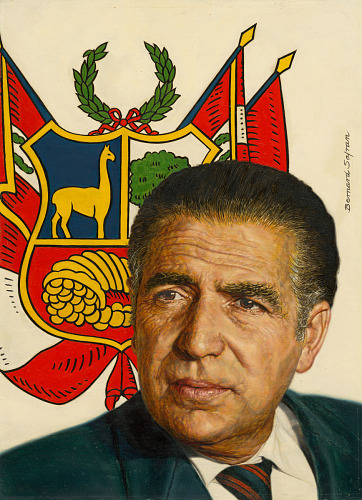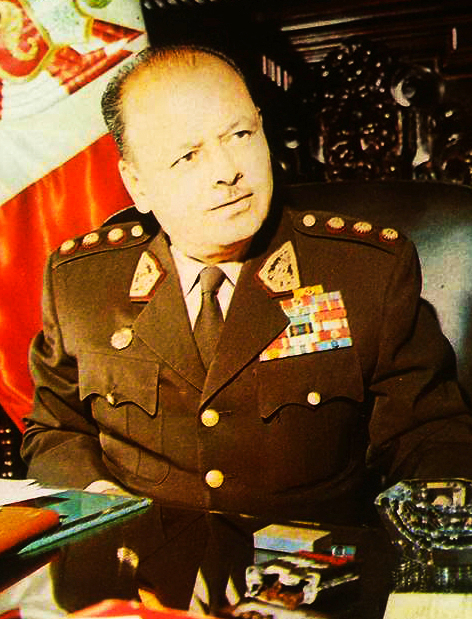Fernando Belaunde Terry

Fernando Belaunde Terry was President of Peru for two terms (1963-68 and 1980-85). He was deposed by a military coup in 1968 by General Velasco and re-elected in 1980. During both terms, economic turbulence and the increase of guerilla activities in the country led to human rights violations by both insurgents and the Peruvian armed forces. The rural Indians wanted land reforms as 1% of the landowners controlled 80% of the usable land. Terry was unable to fulfill his campaign promises of land reform and was overthrown in 1968. Re-elected after 12 years of military rule, Terry found the problems in Peru worse than in the 1960’s and his popularity once again declined under the pressure of increased inflation, economic hardship (prices for exports plummeted, the debt increased, and agricultural production declined), and violence by terrorism (leftist insurgents like the Shining Path). Terry lost the next election in 1985. Terry was however, admired for his personal integrity and his commitment to the democratic process.
General Juan Velasco Alvarado

In October 1968, under the leadership of General Velasco, the military deposed of President Fernando Belaunde Terry. Terry had not kept his campaign promises from 1963. General Velasco had several major accomplishments: land reform (land expropriation and investment into the rural infrastructure led to a modest increase in agricultural production), larger role of the State in the economy including the nationalization of major resources (petroleum, copper and sugar), and challenging the power of the traditional elites. Although he had accomplishments, General Velasco did not completely restructure the nation and he did not receive popular support. Therefore, General Velasco was still overthrown in a bloodless military coup in September 1975. Most of his reforms withered away under the following government.